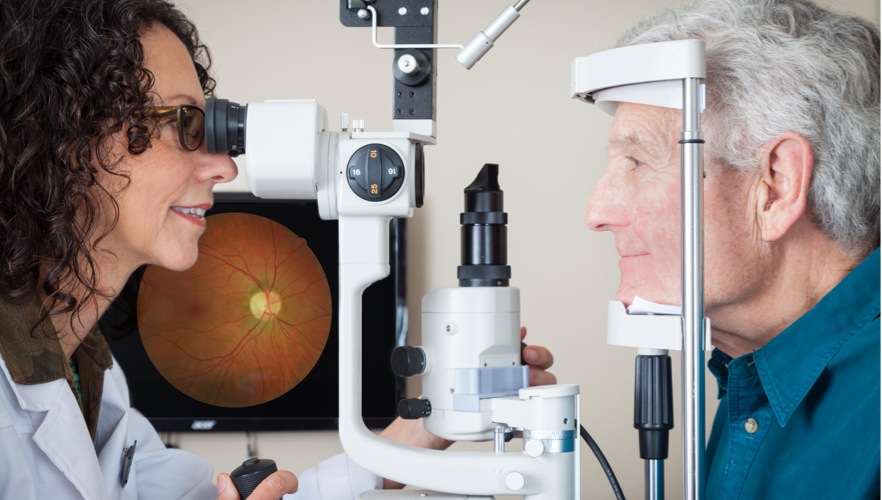Why are regular eye exams so important?
Regular eye exams are important for correcting people’s vision and preventing further vision decline. Vision deteriorates over time, and sometimes patients’ vision degrades more than they realize. Regular eye exams can help you and your doctor keep track of changes to your vision and treat them effectively. They are also helpful for patients who wear glasses or contact lenses, as they ensure that you have the correct prescription.
In addition to correcting people’s vision and managing prescriptions, regular eye exams can help with the detection of eye diseases, even eye diseases that the patient may not be aware of. In an eye exam, your doctor may screen for diabetic eye disease, hypertension, or other conditions that can affect your eyesight later in life. Catching these conditions early is an important part of preventing damage to the eye and vision loss.
Can eye conditions appear without symptoms?
Yes. One condition, glaucoma, has no symptoms early on, but irreversible damage may have been done to the eye by the time symptoms are present. The only way to prevent this damage is to treat glaucoma early on, beforesymptoms are visible. In an eye exam, a doctor may detect unusual pressure in the eye or issues with the optic nerve that may indicate glaucoma. Patients will then be brought back for a comprehensive glaucoma screening that allows the doctor to determine whether glaucoma is the cause of these issues.
How often should I get eye exams?
Children should have an eye exam around the time they are starting school to detect conditions such as lazy eye, or any uncorrected prescriptions they may need. After that, most people should have an eye exam every two years, provided their eyes stay in good health. Some conditions affect how frequently patients should have eye exams. Glaucoma patients should see their eye doctor at least twice a year, if not three or four times. Patients with diabetes should also see their eye doctor annually, as diabetes can have a rapid and lasting impact on vision. Additionally, if your doctor detects a retinal tear, they may advise you to come in more frequently to monitor the condition. Patients with prescription glasses or contact lenses may also want to have more regular checkups to ensure that their prescription needs aren’t shifting.
As patients age, they should also seek more regular eye exams. Age affects your vision and ocular health. Conditions like cataracts and macular degeneration can become more likely, so annual eye exams are recommended for patients over the age of 60.
What protective steps should I be taking between eye exams?
Like with your skin, the sun (and specifically UV light) can damage your eyes. It is important to protect your eyes by wearing glasses or sunglasses that provide UV protection. Make sure the glasses you buy have complete UV protection; without it, they do not adequately protect your eyes from the sun. Patients suffering from specific conditions such as macular degeneration or chronic inflammation around the eyes, may find that supplements like Lutein or fish oil help, but there is no evidence that supplements maintain eye health in patients without these conditions. At an eye exam, your doctor may recommend preventive steps to help protect your eyes.
